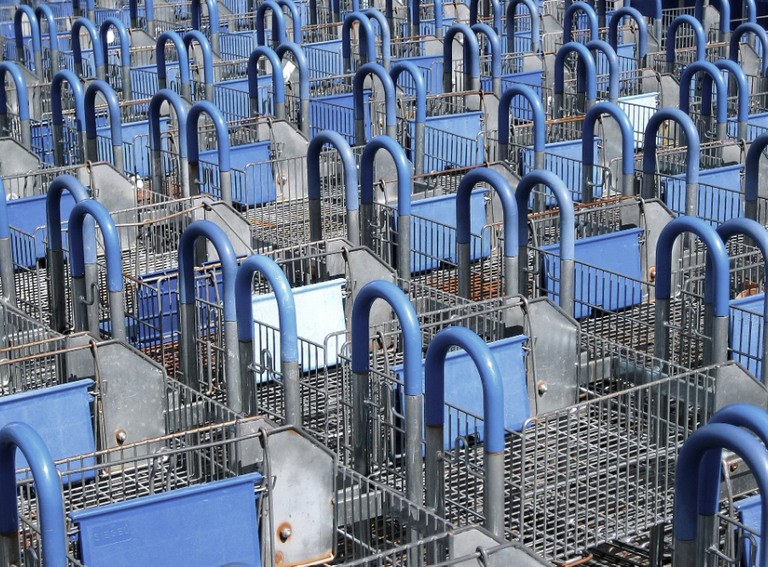Pakistan's food situation is currently in a lot of trouble, and the biggest issue among them is inflation, which is affecting the life of every person. Inflation means the price of goods going up, which is a cause of trouble for common people. In Pakistan, especially food inflation, i.e. increase in the prices of food items, has increased a lot.
Apart from this, increase in fuel prices and increase in the price of dollar are also having a lot of impact in reducing food problems. It has become difficult for people to fulfill their basic needs like food, clothing and shelter. This is affecting their purchasing power, which is already lacking, and this is increasing poverty.
For this, governments will not only have to improve monetary policies but also promote sustainable economic growth, so that life can become easier for people and inflation can be controlled.
Economic Challenges in Pakistan: Unemployment and Job Creation
Unemployment is also a big issue in Pakistan. Every year new graduates and skilled workers enter the market, but it becomes very difficult for them to get jobs according to their skills. Due to slow economic growth and lack of industrial development, the demand for jobs is not as much as the workforce is increasing. Apart from this, frustration and social problems are also increasing due to lack of suitable job opportunities for youth. The government will have to improve long-term planning and investment policies to create employment opportunities.
Debt Burden and Fiscal Deficit
Pakistan's debt burden has also increased significantly, which is challenging its economic stability. Due to taking loans from international financial institutions and bilateral lenders, Pakistan's foreign debt is increasing every year, which is increasing its budget deficit. This impacts the fiscal policy of the country, and governments have to impose additional taxes to control their fiscal deficit. These taxes put a burden on the common people and further affect their purchasing power. The economy could benefit if funds allocated for debt servicing were invested in development projects, but the government has not yet achieved this balance.
Energy Crisis and Industrial Growth
The energy crisis in Pakistan is a serious issue that is hampering industrial growth. Load-shedding of electricity and gas for homes and industries, due to inefficiency and inadequate infrastructure, has a negative impact on production and business operations. These energy shortages not only affect daily life but also slow down economic growth and development. Increasing energy costs in the industrial sector are pushing up manufacturing costs, which is affecting exports and the competitiveness of local products. Energy sector reforms and investments in renewable energy sources are essential.
Agricultural Sector and Food Security
A large portion of Pakistan's economy is based on agriculture, but the sector's productivity and efficiency are declining. Farmers face challenges from outdated technology, inadequate irrigation systems, and climate change, which is reducing agricultural output. This not only affects food security but also harms agriculture-based industries. The government will have to modernize agricultural policies, which must include water management, crop diversification, and sustainable farming practices. Through this, not only food security will improve, but the rural economy can also be improved.
Inflation rates in Pakistan are very high, making it difficult for ordinary people to afford the price of everyday goods and services. Increases in food inflation, energy prices, and transportation costs have put the public under financial pressure. The government's price control mechanisms are very weak, which creates difficulties for market forces to regulate them. Often, prices of essential items are artificially driven up, which creates financial strain for the poor and middle classes. The government must make its monetary policy stronger and more effective, and ensure price stability by improving market monitoring systems.
Pakistan's education system has also not been able to develop according to its potential. Poor infrastructure, outdated curriculum, and insufficient funding have affected the education system. This education gap is not only affecting the skills development of the youth but is also challenging the long-term economic productivity of the country. It is important to promote high-quality education and skill development so that better job opportunities can be created for future generations. The government will have to make reforms in the education sector including training of teachers, curriculum modernization, and use of technology so that human capital can be effectively developed.
Pakistan's trade deficit is also quite high, which is putting pressure on its foreign exchange reserves. Exports are not growing as fast as needed and the volume of imports is too high, which is becoming a cause of currency devaluation and financial instability. Export-oriented industries need to be modernized and made competitive to compete in international markets. Agriculture, textiles, and technology sectors have potential but these sectors need to be modernized and innovation promoted. The government will have to revise trade policies to boost export growth and control trade imbalances.
The energy crisis in Pakistan is also a serious issue that is hampering industrial growth. Load-shedding of electricity and gas for homes and industries, due to inefficiency and inadequate infrastructure, has a negative impact on production and business operations. These energy shortages not only affect daily life but also slow down economic growth and development. High energy costs in the industrial sector are increasing manufacturing costs, which is affecting the competitiveness of exports and local products. Energy sector reforms and investments towards renewable energy sources are essential.



